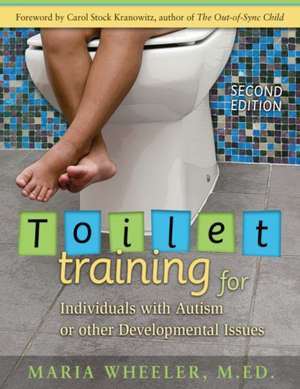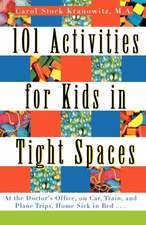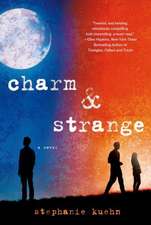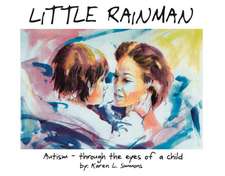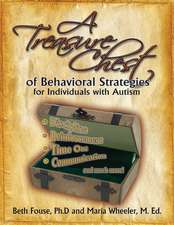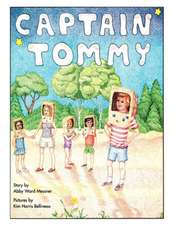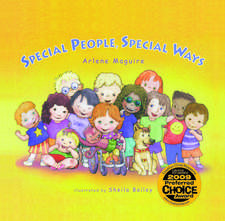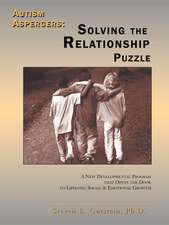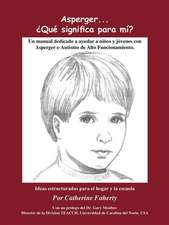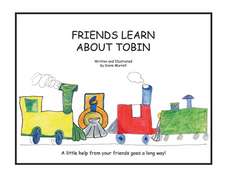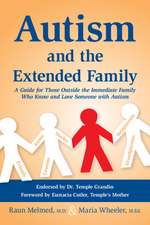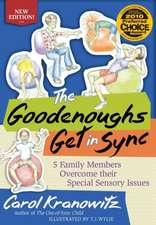Toilet Training for Individuals with Autism or Other Developmental Issues
Autor Maria Wheeler Carol Stock Kranowitzen Limba Engleză Paperback – 31 aug 2007
Toilet training can be a battleground for parents and children. In this book—the only one on the market dealing with the specific issues involved in toilet training children with autism—Maria Wheeler offers a detailed roadmap for success, based on over twenty years of experience. Easy-to-read bulleted lists offer over 200 do’s and don’ts, along with more than fifty real-life examples. Learn, among other things, how to:
Helpful chapters include:
- gauge “readiness"
- overcome fear of the bathroom
- teach how to use toilet paper, flush and wash up
- and deal with toileting in unfamiliar environments.
Helpful chapters include:
- The Importance of Toilet Training
- Determining Readiness
- Developing a Toileting Routine
- Dressing for the Occasion
- Habit Training
- Teaching Continence
- Communicating the Need to Use the Toilet
- When Toilet Training is Successful
- Toileting in Unfamiliar Environments
- Nighttime Training
- Support Strategies
- Common Problems (and Solutions) Associated with Toilet Training Persons with Autism
Preț: 128.46 lei
Nou
Puncte Express: 193
Preț estimativ în valută:
24.59€ • 26.72$ • 20.67£
24.59€ • 26.72$ • 20.67£
Carte disponibilă
Livrare economică 31 martie-14 aprilie
Preluare comenzi: 021 569.72.76
Specificații
ISBN-13: 9781932565492
ISBN-10: 1932565493
Pagini: 133
Dimensiuni: 216 x 278 x 10 mm
Greutate: 0.43 kg
Ediția:2
Editura: FUTURE HORIZONS
ISBN-10: 1932565493
Pagini: 133
Dimensiuni: 216 x 278 x 10 mm
Greutate: 0.43 kg
Ediția:2
Editura: FUTURE HORIZONS
Cuprins
Chapter 1: The Importance of Toilet Training
Resources
- Characteristics of autism that influence toilet training
- Impact on home, family and community
- Impact on school and learning
- Impact on social relationships
- Chronological age as a factor
- The issue of mental age as a part of readiness
- Awareness levels in readiness
- Physiological factors to consider
- Other readiness indicators
- Developing toileting schedules
- Communication structures
- Pre- and post-toileting rituals
- Fluid intake
- Undressing and dressing
- Flushing
- Handwashing
- Diapers or underpants
- Outerwear
- Other items and equipment needed
- Sensory issues related to clothing and other items used
- When is habit training the appropriate option
- Determining a reasonable schedule
- Developing a routine
- Readiness for spontaneous toileting
- Bladder control
- Bowel control
- Alternate forms of communication
- Availability of communication
- How to respond to communication efforts
- When communication demands are a step backward
- When to reinforce
- How to reinforce
- The importance of environmental structure
- Locating restroom in new environments
- Communicating the need to toilet
- Adjusting toileting routines to new situations
- Survival kits for community outings
- When to begin nighttime training
- How to teach nighttime continence
- Special aids
- Modeling Stories that teach
- Preteaching
- Fear of the bathroom
- Fear of the toilet
- Repeated flushing
- Negative reactions to taking away diapers
- Failure to void in the toilet
- Failure to have a bowel movement in the toilet
- Urinating outside of the toilet bowl
- Smearing feces
- Resistance to using toilet paper
- Using too much toilet paper
- Resistance to washing hands
- Needs frequent cues to complete routines
- Resistance to using unfamiliar toileting facilities
- Is toilet trained at home, but not at school
- Is toilet trained at school, but not at home
- Regression or setbacks
- Data collection form for toilet training
- An example social story—Using the Toilet
Resources
Notă biografică
Maria Wheeler, M.Ed., has spent more than twenty years of her professional life in the fields of Psychology and Special Education, with an emphasis on Neurobehavioral Disorders, Applied Behavior Analysis, and Specific Learning Disabilities. She has held positions in Florida and Texas as a special education classroom teacher, behavior specialist, and director of behavioral services for residential treatment centers serving adults and children with neurobehavioral disorders and developmental disabilities. She currently holds Texas teacher certificates/endorsements in Serious Emotional Disturbance and Autism, Special Education, and Psychology. Maria works as a private consultant serving various school districts, educational agencies, and families throughout Texas. She is a nationally recognized speaker and trainer in the fields of autism, behavior and learning disorders, and effective discipline. She provides on-site behavior intervention and classroom curriculum consultation for educators of students with autism and other behavior and learning disorders. She also provides on-site coaching for in-home trainers and tutors, parent training, and professional development training. Maria authored the popular book entitled, Discipline That Works for Inclusive Schools, published by RealWorld Publications. She co-authored one of the leading manuals on behavior, A Treasure Chest of Behavioral Strategies for Individuals with Autism, published by Future Horizons, Inc.
Descriere
Individuals with autism are reportedly one of the most difficult populations to toilet train. This book offers effective strategies that take the childs sensibilities into account instead of trying to force traditional methods. Tips, case examples, and cautions help make the process more of a lesson and less of a battle for all involved.
